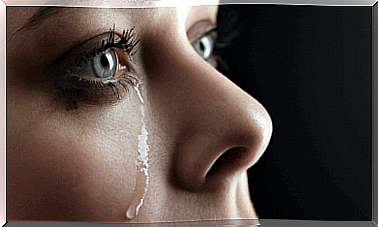Awareness And Consciousness
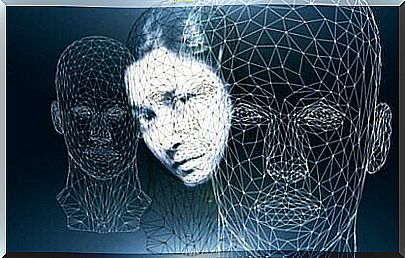
Although awareness and consciousness are often used interchangeably, they don’t actually mean the same thing. For example, saying “I have a clear conscience” is very different from expressions such as “being conscious after hitting my head” or “being aware of all the stimuli around me”. The first term is more about philosophy, while the second still represents a great challenge for neuroscience.
Molecular biologist and Nobel laureate Francis Crick always said that although it is necessary to know how to distinguish between awareness and consciousness, in the end we always remain silent when we are asked to give an exact definition of one and the other. These are tremendously complex entities, especially when it comes to awareness.
Confusing the two words is a fairly common mistake, even among the most famous authors. So let’s see what are the facets and the particularities that define the two dimensions.
Awareness and conscience: characteristics and peculiarities
If we were to use an essential and general definition to distinguish awareness from knowledge, it would be the following: awareness is something that allows us to be part of our reality, to perceive every nuance, every stimulus and internal process. Conscience, on the other hand, allows us to behave in an ethical and socially acceptable way.
Broadly speaking, the difference between the two terms seems understandable and at times even trivial. However, if someone told us “I am aware of my actions” would they refer to the moral or perceptive aspect? Or even both of them? In situations of this kind we enter the subjective sphere where everything depends on what the speaker wants to express.
What is consciousness?
Philosopher and mathematician Blaise Pascal said that conscience is the best book on morality ever. And he wasn’t wrong. This entity is about the human ability to know which actions, thoughts, words and situations are right and appropriate and which are not.
It is a moral and ethical concept, however it is also necessary to point out some considerations:
- Consciousness is not about processes like attention and perception.
- Philosophers like Descartes or Locke tried to deepen this concept to understand what was the relationship between consciousness and language, thought and intelligence. It must also be taken into account that one of the most notable differences between awareness and conscience is that the latter was seen by philosophers as a virtue.
- To say that a person is conscious is to give him credit for having moral values. Having a conscience means trying to live in accordance with a whole series of basic rules of respect and balance. But there is more, sometimes we also use this expression to refer to animals, as sometimes they show that they act in a “moral” or better “social” way just as humans would do.
What is awareness?
Being aware is different from simply staying awake, with your eyes wide open and feeling part of the sensitive reality that surrounds us. William James, father of North American psychology, was one of the first authors to address the difference between consciousness and awareness. As a philosopher, psychologist and scientist, he defined awareness through a series of characteristics that will allow us to better understand what it is:
- Awareness is subjective. It has nothing to do with ethics and morals. It is a personal process through which everyone is aware of their thoughts, of their internal reality.
- It is relative to thought, therefore it constantly changes, it is a continuum that never stops, that always processes information and responds to stimuli.
- It can be selective. It may happen that at a given moment we give more attention to an aspect (internal or external) by separating it from the rest of the stimuli to establish contact with what interests us.
Awareness is the greatest enigma of the human being
Cristoph Koch is a North American neuroscientist and one of the leading experts in the study of awareness and its neural foundations. In books such as The Pursuit of Consciousness: A Neurobiological Perspective , the author points out that the first and fundamental difference between awareness and consciousness is that the former is still an enigma.
The second, on the other hand, concerns the sense of responsibility, with the values and with the knowledge that each of us has of himself and of his own actions.
This famous scientist also points out that there are two types of awareness to take into consideration:
- Primary awareness: it concerns our perceptions, sensations, memories, everything we dream and desire … Everything that allows us to separate from what surrounds us to define our individuality.
- Reflective consciousness: this dimension has to do with knowing how to “observe one’s mind”, knowing what one is, what one knows and what happens within oneself.
In short, consciousness and awareness are very complex concepts, but at the same time very interesting. Very often they are nothing more than mere inventions of our mind. They are what makes us human. As Thomas Huxley said in his time, it is those entities that make us “aware” that we are more than a mass of bones, muscles, cells and skin.
